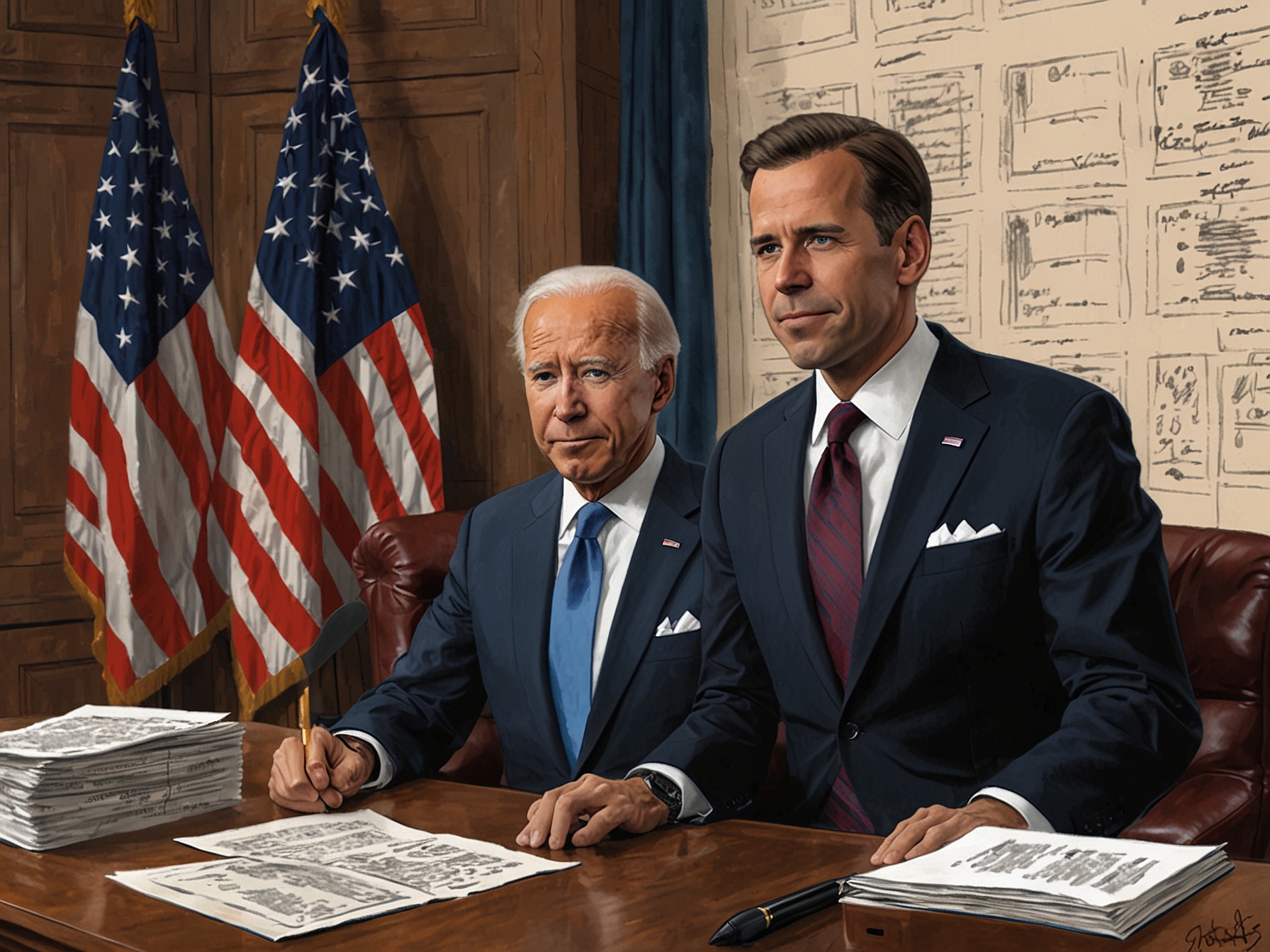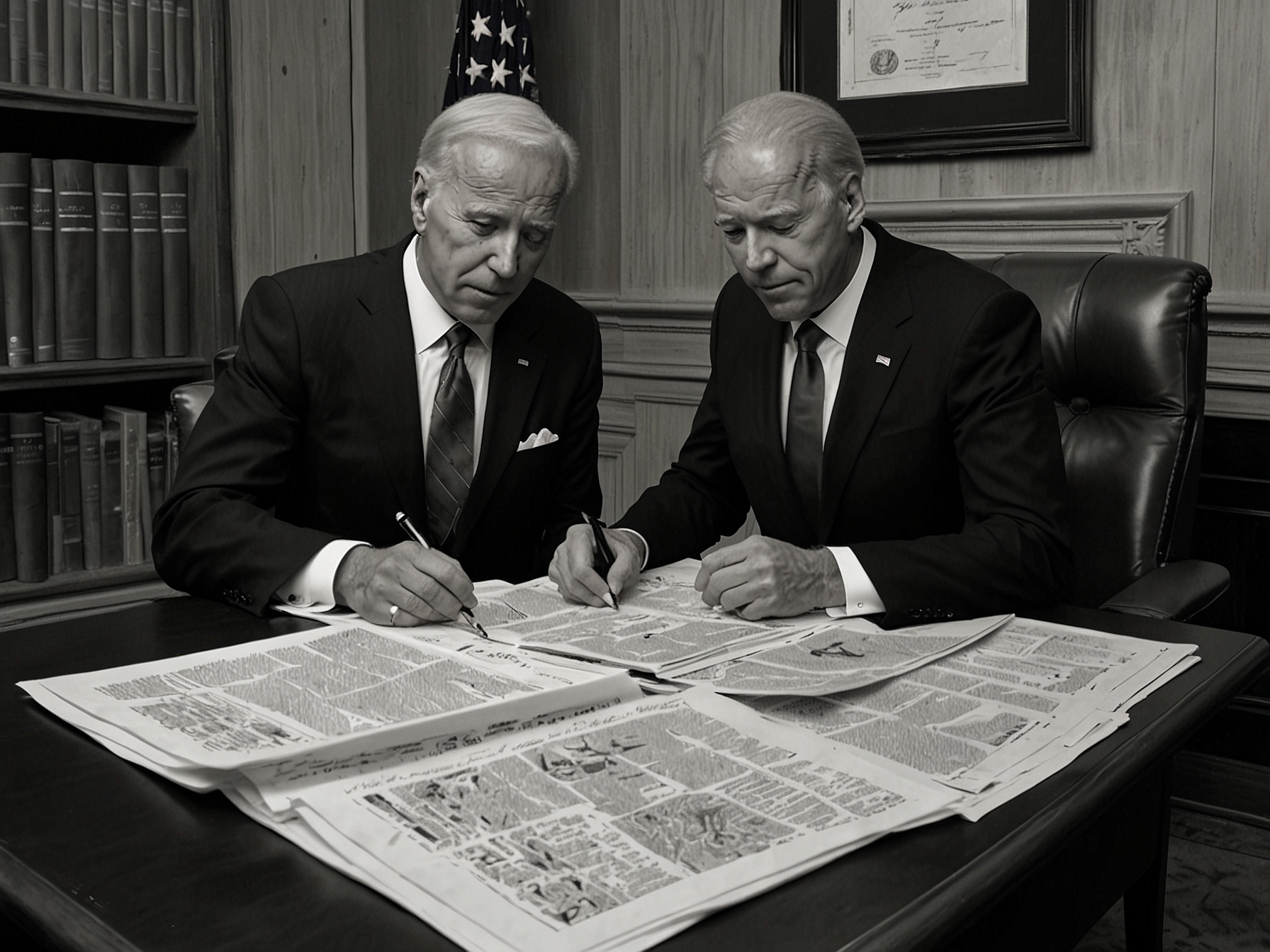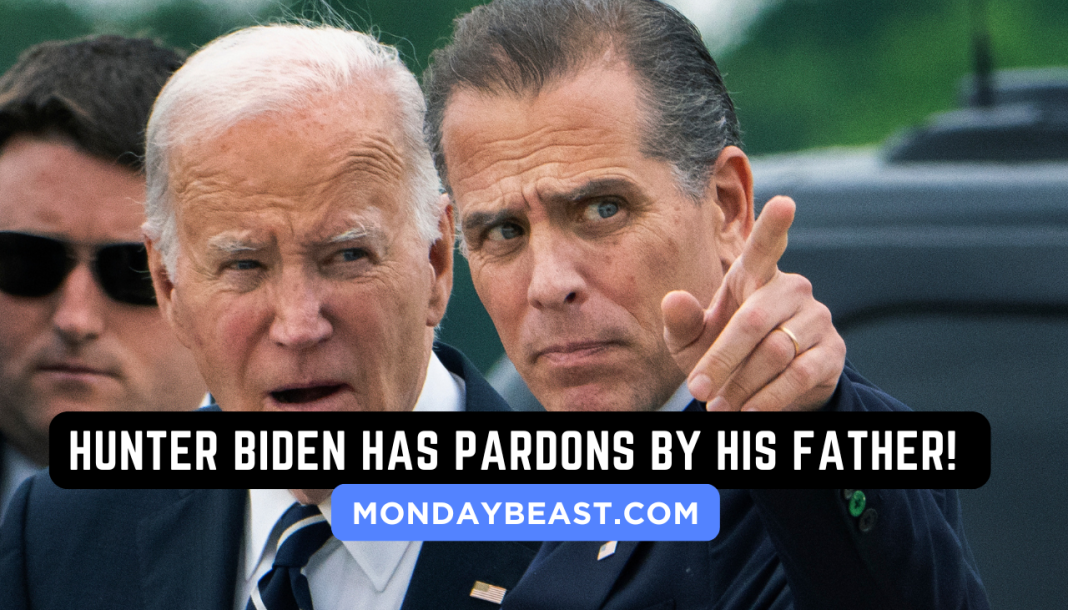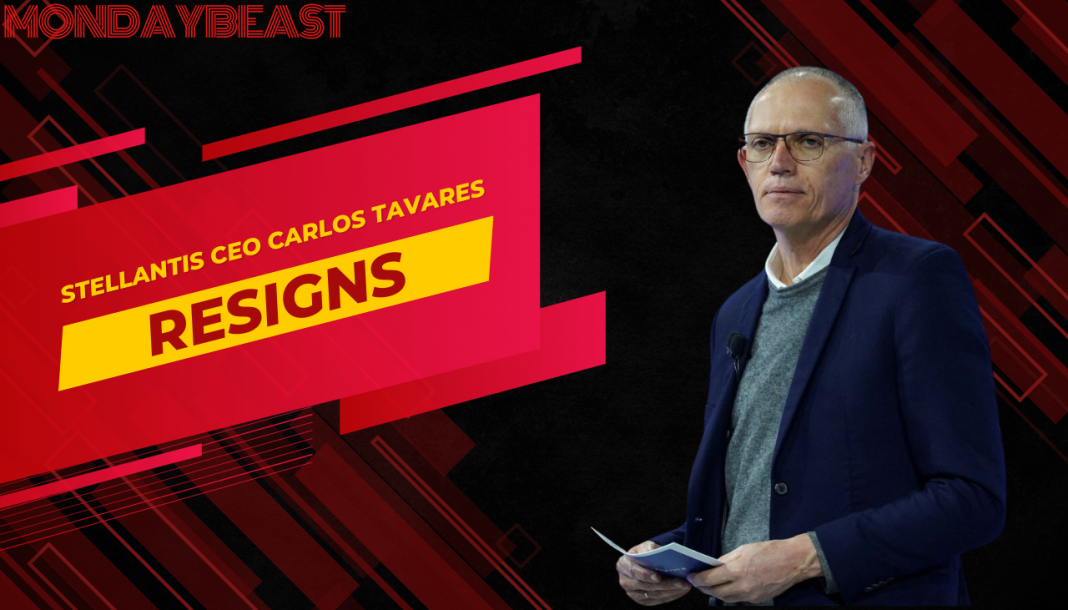The backdrop of forgiveness can be messy, marked by family ties and political strife. Recently, President Joe Biden made a stunning move. He pardoned his son, Hunter Biden, who faced sentencing for gun crimes and tax convictions. Many were surprised, especially since Biden had publicly sworn not to issue a pardon for his son.
What does this really mean? For a president who promised to uphold the law, this feels like a departure. It raises questions about fairness in the judicial system. Is a powerful figure’s clemency justifiable, especially for family? Joe Biden believes it is. He stated, “I believe raw politics has infected this process.” The president feels his son was unfairly targeted.

A poignant moment unfolded as the president shared his thoughts. He reflected on the emotional turmoil within their family. Addiction isn’t a simple story; it’s complex, filled with highs and lows. Hunter Biden has been very open about his struggles with addiction. He has acknowledged his mistakes during the darkest days. This pardon adds another layer to his recovery, doesn’t it?
The timing of this decision raises eyebrows. The announcement came right after Biden’s son faced serious legal jeopardy. There’s no doubt it has serious implications for both men. Hunter won’t be sentenced now. The immediate threat of prison is gone, thanks to his father’s intervention. This means no lengthy hearings, no courtroom drama.
Ironically, the pardon does not come without its controversies. Some might argue it undermines the justice system. For others, it’s a bittersweet victory amid family struggles. How do we reconcile personal compassion with the law? Biden faced immense pressure from various sides—supporters, critics, and his adversaries.

The motivation behind the pardon seems deeply personal. In his public statement, Biden spoke about the toll of addiction. He emphasized that Hunter was unfairly prosecuted for his past mistakes. Many saw this as an emotional plea, reflecting a father’s love.
In Hunter’s words, he regards this opportunity as a chance for redemption. He vowed to use this moment wisely. This sentiment resonates with many who struggle with addiction. They often seek forgiveness, not just from society, but from themselves.
As families navigate the complexities of addiction, this decision speaks volumes. The president’s actions intertwine their personal lives with public scrutiny. Is this a break in political norms, or a necessary act of mercy? The answers remain elusive for now.

Many legal experts have weighed in on the implications. By issuing this pardon, Biden shatters previous expectations. What does this mean for future presidential powers?
As we assess this unexpected turn, we should consider broader impacts. Opinions on justice and accountability are constantly evolving. As citizens, how do we view these dynamics in our justice system? Should political ties influence legal outcomes? These questions linger in the air.
As this story unfolds, speculation about its repercussions abounds. Will this alter public perception of Biden as a leader? Many voters are already skeptical.
The Biden family saga is both alarming and enlightening. It reflects a painful journey through addiction, healing, and now, political maneuvering. How do we separate familial love from the weight of justice? It’s a question that echoes within many households.
This pardon has implications beyond the immediate. It challenges the boundaries of justice, accountability, and forgiveness. As Americans consider their views, what will we learn about mercy?
In summary, Biden’s decision to grant a pardon reveals deep familial respect and political strategy. This unfolding saga combines personal struggle with broader societal issues, raising questions about justice and compassion. In the end, how do we evaluate the balance between law and love?




